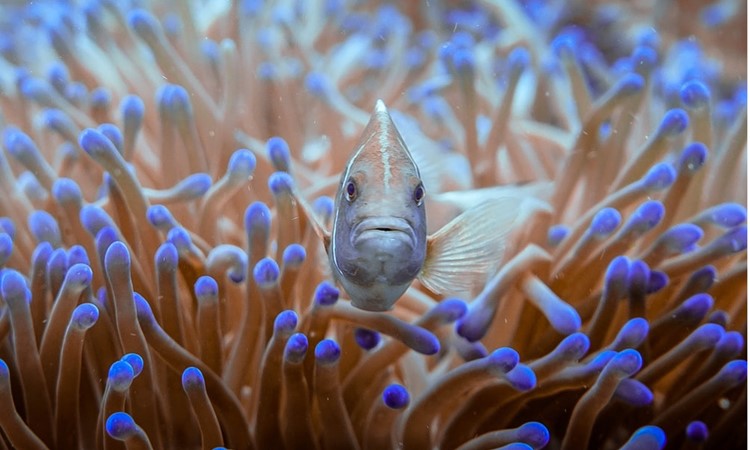An Interview of Professor Michael Sweet from University of Derby, representing the International Coral Reef Society (ICRS) at COP26, by James Fallon, and my reflections on it
– by Jessica Underwood.
The International Coral Reef Society (ICRS) represents coral reef scientists and broader communities, concerned with coral reef conservation, aiming to amplify their voice in science informed policies that protect coral reefs for future generations. Coral reefs, although restricted to limited sectors of the ocean, are highly diverse environments which provide habitat to 25% of marine life. Worldwide about 6 billion people rely on reefs to some extent, with 1 billion people relying on coral reefs extensively. They are also highly vulnerable to climate change, both from increasing sea temperatures, and from the increasing acidity of the ocean. Michael explains “…we’re trying to highlight the plight of reefs but also possibly how they can be saved, especially if we can limit warming to 1.5 °C”.
James asked whether the impacts being felt by coral reefs are distributed evenly around the world. Michael explained that there are some sites around the world which are more thermotolerant, meaning they can cope with the increasing temperatures which are killing other coral reefs. Lots of research is in progress to better understand this. It may be that the corals in these reefs have experienced traumatic climate events in the past, so the remaining corals have a level of resilience.
However, these sites are not the norm. Michael told James that large areas are already severely threatened. The great barrier reef is about 30% degraded, which is a statistic that is often cited, it is also at risk of losing its world heritage status due to its degraded state. More shocking to me was that the Caribbean and Florida reef tracts are already about 90% degraded. Hearing that really drove home that this isn’t an ecosystem we are trying to save tomorrow, or in ten years’ time. This is an ecosystem which is already suffering from human-induced climate change and may not survive if we don’t limit global warming. Even if we stopped emitting greenhouse gases tomorrow, we would still see lots of changes over the next 60 years. Much of the research occurring now is working out how to give corals a helping hand so reefs can survive this period.
A quote which really stood out to me was this: “As far as the science is concerned, we actually have a heap of information, enough to know what to do.” I feel that this captures a large amount of the science around climate change: the science needed to prove that climate change is ‘real’ has already happened. We can no longer hide behind “the science isn’t there”. Now the policy makers, the politicians, the private sector and citizens need to make decisions and choose to take actions to prevent climate change.
James asked Michael what he thought would be the most important policies for coral reefs to come out of COP26, and what his feelings were coming into COP26: “Undoubtedly, it’s got to be about our carbon footprint, but I don’t believe that’s only a Government action. I think that (action) obviously does need to happen, but we can do it individually as well.” He also mentioned how he was pleased that people are now talking about climate change. Even since the Paris Agreement there, has been a greater push to get information into the hands of the policy makers. “Now they have that information, hopefully the action can start to come through.”
I am generally a very optimistic person, which can be hard in the face of the challenge presented by the climate crisis. However, I really agree with the sentiment of this quote from Michael: “Some might say we are a little too late, but we have to try.” Nothing will be gained if we give up, and nothing will be saved. Ultimately, I agree that all we can do is try our best!
Written by Jessica Underwood, COPCAS 2021 PhD Student.


